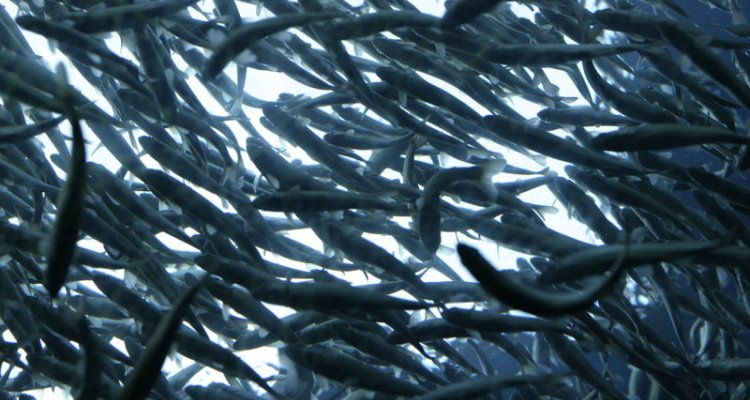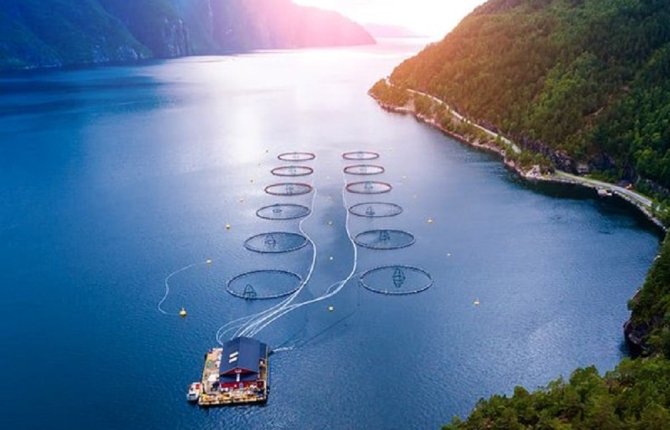
Project
FEED-X - Removing the barriers to sustainable feed and affordable food by 2030
FEED-X is one of the pilot projects of Project X Global, a WWF-founded corporate systems accelerator that helps organisations make shifts in their sustainability agenda. The vision of FEED-X is to remove the barriers to more affordable and sustainable food production in the global feed industry by 2030.
The target of the project is for 10% of the global feed industry to adopt alternative feed ingredients into their value chains. This will be reached by sourcing, testing, financing and scaling alternative feed ingredients.
The expected impact of the project is to significantly reduce environmental impacts (of aquacultured seafood) related to feed ingredient production, specifically for ingredients that contribute to deforestation, exhaust global carbon emission budgets or are sourced from non-responsible fishing practices. FEED-X programme is first focused on salmon and shrimp, as two aquaculture species with particular feed requirements and industry structures to cater to.

FEED-X Category de-risking
So far, a value chain analysis and adaptability assessment for the salmon and shrimp industry were performed, of which the outcomes were a problem definition report and a category specification report. The latter has provided priority solutions within feed ingredients, feed production and feed efficiency. Those priority solutions are looked at ‘Category de-risking’ which is now being assessed by seven lenses, namely:
- environmental,
- nutritional,
- policy and legislative,
- ethical risk,
- social acceptability,
- economic and
- investment readiness and profitability.
Wageningen Livestock Research: nutritional lens
Wageningen Livestock Research is responsible for the nutritional lens of FEED-X‘s category de-risking stage. This consists of a nutritional assessment of FEED-X’ priority solutions of feed ingredients for salmon and shrimp. Our goal is to support FEED-X on understanding which of those priorities might be suitable or not as potential feed ingredients from an animal nutrition perspective. Salmon and shrimp have been chosen as the demonstration cases for the FEED-X pilot due to their high importance for human consumption, but also a high demand for raw materials to reach each species optimum feed requirements.
FEED-X Next steps
The FEED-X Challenge will be formally launched in early 2019. It will build upon the findings of the Category de-risking stage and call for innovators to come forward with solutions that can transform the sustainability performance in the aquafeed value chain. The nine most promising innovators will be selected and provided with access to opportunities to scale their operations, including in-depth testing to streamline integration into Skretting’s procurement and ultimately accelerate adoption across the entire industry.
Towards sustainable innovations for the aquaculture feed industry
Recent research by WWF and SARF has shown that our present food production system is so reliant on terrestrial crops for livestock and fish feed that there are not enough land and freshwater resources to provide sufficient food to feed nearly 10 billion people in 2050. If no change occurs, greenhouse gas emissions will also increase dramatically between now and 2050. The projected increase in aquaculture production means there will be an additional need for raw materials, which is why the aquaculture industry is also looking for ways to overcome the risk of a raw materials gap.
Conventional materials used in aquaculture feed are fish meal, oil, agricultural crops and protein and fat products. Potential novel feed ingredients (unconventional feedstuffs of plant or animal origin) that could change the feed industry are already available, but not yet at commercially viable volumes or prices. Considering that the aquaculture industry has major impacts on climate change and biodiversity, it makes an excellent test case for the FEED-X pilot project towards sustainable innovations for the aquaculture feed industry.